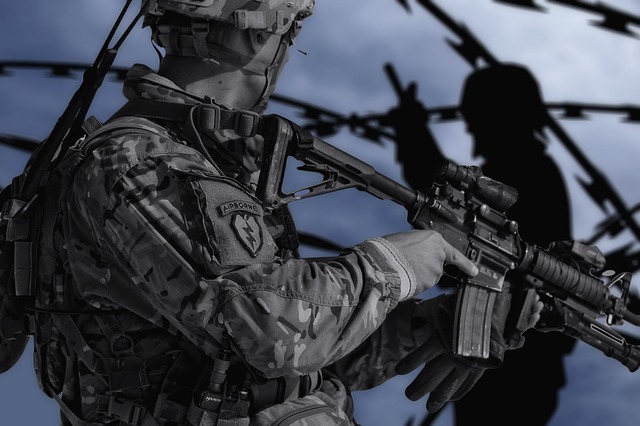The director of such films as My Dinner with Andre and Au Revoir les Enfants, Louis Malle coaxes from his provocative film, Lacombe, Lucien, what was absent from the others: an enigma of a primary character that remains inscrutable and hollow until the epilogue of the last scene revealing that this character is to be executed by a tribunal of the French Resistance.
This is Lucien Lacombe, who has taken to rattling off his last name first in keeping with the bureaucratic procedures of which that is the ugliest, most noxious sign. Having grown up on a farmstead of the French countryside, Lucien exhibits all the obvious traits of a rustic lad living off the land: he is a stoic, inarticulate boy with wholesome features and a sturdy physique, his face often slack and sometimes insipid; he can hunt and trap, giving chase and wrestling his game to the ground; he shoots and plucks, and he works at the village hospital sweeping floors as a kind of low-level orderly. The story draws out this plainness and lack of sophistication as it delineates the development of Lucien, whose interior is as hollow and featureless as his many observable traits. This interior reveals itself slowly as the plot begins to kick up dust.
Asking a former schoolteacher and member of the Resistance for membership, Lucien encounters the first innocuous decision catalyzing a long series of moments and decisions that lead him along a roistering roller coaster of action and primality: the schoolteacher refuses him, maybe sensing that this insipid and feral young man would ill satisfy the duties of those that have chosen their obligations, that have consciously committed to the actions and stakes of their own principles. Lucien, having none, is a cub freely on the prowl, looking for a carcass or a maimed hare or anything to satisfy his insufferable animal instincts.
Walking alongside his bicycle into the town, Lucien sees a hotel and ventures into what are the precincts of the French Gestapo, or the Carlingue, which plies him with drink while eyeing him steadily until he gives away the identity of his schoolteacher, the man of the Resistance. This man is brought in for torture, and Lucien is inducted into the ranks of an organization whose actions are the same as the Resistance—people get to shoot things, you get to wear tailor-made uniforms, and the townspeople cower in your presence. It is this windfall of power that allures Lucien, providing him an outlet for his amoral instincts and his primitive, barren selfhood. Lucien has become Lacombe, Lucien. And the Lacombe always comes first.
After leveraging a relationship with the daughter of a Parisian tailor, whose disdain for Lucien is mellowed by a roaring apathy and the patience of a class-conscious boulevardier, Lucien begins hanging around at the apartment, sleeping with this daughter, and lording his misbegotten wartime power over the father. One senses that this tailor-sophisticate is squirming beneath the thumb of a child, and more pressing than Lucien’s parasitism of his daughter is the humiliation of his position—impotent, slavish, subdued, productive of a self-contempt owing to its prolongation. His pride is more injured than his paternal instincts.
So the inevitable breaking point of Albert Horn comes to pass: donning his impressive highlife attire, he strolls to the hotel of the French Gestapo, where he hopes to find Lucien and have a tête-à-tête concerning his daughter. But the Gestapo turn him over to the Germans, and the heedless father is escorted to a dismal, smoke-filled future of death and destruction. I agree with Pauline Kael that “some stages in Horn’s breakdown seem to be missing, and his later scenes are lamely directed,” because this climax and his swift egress disserve the painstaking and testy buildup of his character, whose combustion was to be sorrowful and fiery rather than fizzling and flat.[1]
His last scene gives way to the animalistic struggle for survival, the raiding of the Gestapo hotel, and the German retaliation in the village. Accompanying a German soldier to the apartment of France and her grandmother, Lucien decides to kill the soldier and save the women who were to be deported (maybe because the soldier forbid Lucien to pocket the watch that was rightfully his); this impulsive and self-interested decision carries the story through its final scenes, in which the three of them, having escaped to an abandoned farmhouse, stay hidden and Lucien and France make love, frolic through empty fields, and dither in the emptiness of the war-torn country and their lives.
Every mannerism of Lucien–the slack, insipid expressions of boredom, the apathy, and the desultory dynamic of the lovers–suggests two points about Lucien’s state of mind: he feels no guilt whatsoever for his treason and the murders condoned by the Gestapo; and he exists without any life force or recourse to the higher faculties. France becomes to Lucien a plaything who was only momentary, a solar flare, another means of satisfying his indiscriminate and purblind instincts.
As he lolls on the grass in the final scene, uninterested in the coquetting temptations of his naked lover, France, Lucien appears merely a boy adrift, and one cannot really hate him, even if his factory setting is an absurd and doltish child-tyrant; having had no moral bearings in the world, no life-stakes, no substantial interest in anything at all, he can be said to have been merely passing by on this earthly adventure. The epilogue reveals that this was indeed the case: shortly after the last scene, he was executed by a tribunal of the Resistance. So he was just passing by—a lackluster, sighing wind rustling the greenery and meadows of human society, then vanishing as though it had never been.
Louis Malle’s tempting challenge in this film was to examine an enigma without scruples, and pry from it a dimensionality greater than the boy alone would suggest. The external rhythms of the film, and the occasional chilling close-up, succeed in observing this enigma and illuminating it for the audience. But what exactly it illuminates, no one can be sure. Lacombe, Lucien can be said at worst to have achieved the pristine act of observation, without revealing anything in particular. At best, it has revealed what may be more than nothing: a provocative and enigmatic something. Can one determine the motives of the wind? No, but maybe one can derive something from it, all the same.
- Kael, Pauline. For Keeps. The Penguin Group, 1996. ↑



